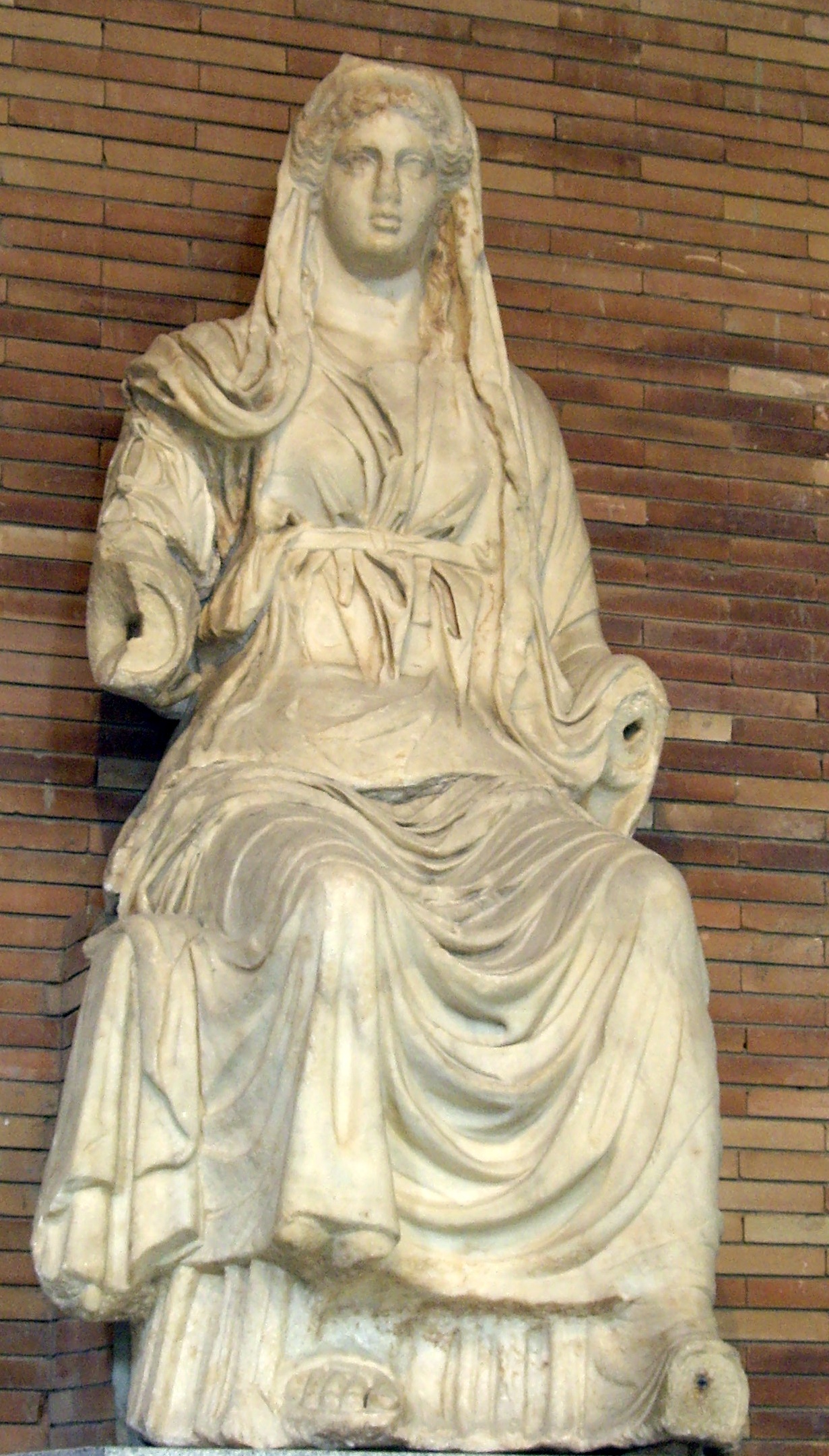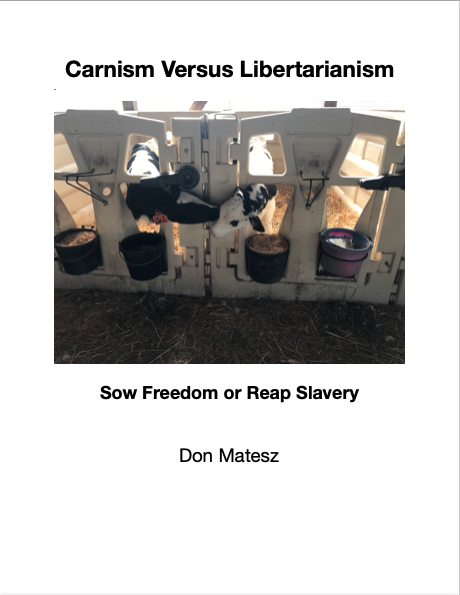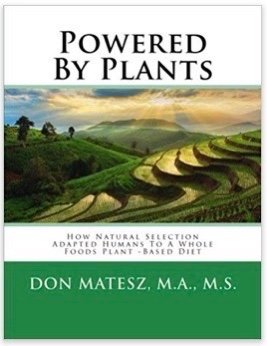Review of The Dharma Manifesto
 |
In The Dharma Manifesto: A New Vision for Global Transformation Sri Dharma Pravartaka Acharya (Frank Morales, PhD) provides both a blueprint and a strategy for returning any nation founded upon Natural Law, which he defines as follows: "the universal ordering principle that lies inherent in the very structure of our cosmos." |
The Sanskrit word dharma literally means "pillar, foundation." In a Vedic philosophy and religion it refers to the fundamental laws governing the universe; in other words, Universal Natural Laws governing all things and beings. We must base all of our actions on such foundation if we want our actions to have the support of Reality. If we construct anything in opposition to Natural Law, it will fail. Actions in accord with Natural Law produce order, strength and health, while actions opposed to Natural Law produce disorder, weakness and disease. This applies to our personal lives, cultures and civilization.
|
My Master's Thesis in philosophy was entitled Buddhist Metaphysics and Its Significance to Political Economy. Buddhism calls itself Buddha Dharma, meaning the Fundation (dharma) of Awakening (buddha). One of the most widely known and read Buddhist texts is the Dhammapada (Dharmapada), Dharma Path, which is a collection of some of the Buddha's guidance for followers of Sanatana Dharma (the Eternal Natural Way). The Buddha was an unsurpassed yogi and he taught the Eightfold Noble (Aryan) Path. |
 |
As I have mentioned in my article on the good life, the concept of Natural Law permeated all traditional non-Abrahamic civilizations. In The Dharma Manifesto Sri Dharma Pravartaka Acharya explains this thoroughly:
|
"The concept of Natural Law was the foundational belief of our ancient pre-Abrahamic ancestors. All individual and social standards were measured in direct proportion to their adherence to Natural Law (Dharma). Consequently, we find numerous words for this principle of Natural Law in all the important languages of the ancient world. In the ancient Sanskrit language, again, this universal ordering principle is known as Dharma. In Pali, the word is Dhamma. In ancient Greek, it was called Physis. In Avestan Persian, Natural Law was known as Asha. The Egyptians call it Ma'at. In Chinese, it is call Tao. The Japanese refer to this principle as Do. The ancient Lithuanian Romuva religion calls this principle "Darna." In Latin, it is Liga Natura (Natural Law). Among the Native Americans, it was known by too many hundreds of diverse words to even mention. There are four living world religions today that still use the actual Sanskrit word Dharma to describe the foundation of their beliefs: Sanatana Dharma, Buddhism, Jainism and Sikhism." |
He continues:
|
"Though known by many different names in many different cultures throughout history, the philosophical concept of Dharma, or Natural Law, was a universally held worldview that was found in most, if not all, of the world's most ancient civilizations to one degree or another. Indeed, the concept of Dharma was the very foundation of these civilizations, and thus, however indirectly, of our own modern-day culture. Some of the many ancient civilizations that upheld Dharmic values included the Minoan, Phoenician, Greek, Roman, Celtic, Nordic, Germanic, Slavic, Egyptian, Hittite (ancient Turkey), Persian, South Asian (including post-Vedic "Hinduism," Buddhism, and Jainism), South-East Asian, Tibetan, Chinese, Japanese, Mayan, Hopi, and others." |
All of these nations or civilizations existed and thrived independently of and long before the rise of the Abrahamic tradition (Judaism, Christianity, and Islam) which has waged all-out war on the Dharma tradition in search of complete dominance since its inception. Thus Sri Dharma Pravartaka Acharya correctly notes that "Dharma is synonymous with civilization itself, and is the shared ancient heritage of many of the world's people who are alive today."
The Dharma Manifesto lists some of the key elements of traditional Dharmic culture:
- The centrality of work, education, and family (ancestor reverence).
- The conscious creation fo art, literature, architecture and all other methods of aesthetic expression.
- The cultivation of discursive thought, logical reasoning, scholarship, and liberal learning.
- Expression of high regard for farming and gardening (regarding farmers and gardeners as one of the highest classes of occupation).
- Low regard for merchants, bankers and others who obtain wealth without creative labor (physical or mental).
- Advanced scientific investigation.
- The systematic development and practice of natural medical arts rooted in understanding the ultimately non-material / spiritual nature of humans (e.g. Ayurvedic medicine, traditional Confucian-Taoist medicine).
- Regarding traditional monogamy, marriage and family as the foundation of healthy society.
- Responsibility, accountability, self-reliance and personal autonomy (liberty).
- Striving for excellence and nobility in all endeavors.
- Valuing ingenuity, inventiveness, resourcefulness, originality, and pioneering.
- Seeking to be honorable, respectful, loyal, earnest, and noble.
If you have any understanding of the history of European civilization, you will know that these were values of the Greeks, Romans, Celts, Slavs, Nordics and Germans long before Christianity took root, and indeed that Christianity violently opposed many of these elements of Dharmic civilization during its reign over Europe up until the Renaissance when Europeans began to reclaim these so-called "pagan" elements.
The Dharma Manifesto recognizes the central role of spirituality and religion in healthy civilization:
|
"Human beings are by nature spiritual beings. The free expression of spirituality in the form of prayer, meditation, ethical behavior, ritual, worship, philosophical inquiry, and so on is as much an organic biological imperative for human beings as are the basic essentials of eating, drinking and sleeping. Any society that does not recognize the central importance of spirituality in the lives of its citizens is not a healthy society, but is selective of the distorted and psychopathic mindset of its corrupt leaders. Such socially destructive, atheistic societies are functionally anti-civilizational in nature. "In any truly civilized society, spiritual needs take priority over material desires. Indeed, it is spiritual attainment that most securely leads to meaningful material prosperity. The spiritual serves as the basis of the material." |
The Dharma Manifesto Theory
In The Dharma Manifesto, Sri Dharma Pravartaka Acharya contrasts traditional Dharma theory (dharmavada) with Marxism and modern materialistic "science". The latter modern ideologies claim that your world and your own existence are products of a random, relativistic, meaningless, conflicting and chaotic purely material nature. In contrast, Dharma theory correctly asserts that our world is a product of intelligent design and has a deep structural purpose and meaning, which gives our world its stable patterns of movement and intelligibility. The patterns and design evident in the natural world are manifestations of Natural Law (dharma) and Dharma is nothing less than a manifestation of the Transcendent Intelligence, commonly called the Supreme Being or God.
When we observe Nature, we see a miraculous harmony of diverse elements –– species, ecosystems, weather, climates, and so on. Despite diversity and seeming opposition, the Tao achieves harmony. Dharma theory seeks to replicate the beauty and harmony of Nature in individual humans and human society by application of the Natural Law to cultivate the health of both individuals and whole human societies. Thus, the Dharma Manifesto is what traditional Confucian-Taoist medicine calls shang-i: higher medicine.
|
"The lower doctor heals the illness; the median doctor heals the whole person; the higher doctor heals human society." ––Sun Sze-Mo (a Chinese physician of the eight century A.D.) |
Dharma Manifesto vs Conflict Manifesto
In my article comparing the outcomes of modern Western science to those of Confucian-Taoist medicine (commonly called traditional Chinese medicine) I noted that Western science wages war against Nature and humanity. I argued that Western science is fundamentally anti-natural and anti-human because it is base on a false conception of Nature borne from the marriage of some false Greek philosophy (specifically, Parmenides, Plato, and Aristotle) and the Abrahamic religious tradition (Judaism and conventional Christianity).
In The Dharma Manifesto Sri Dharma Pravartaka Acharya correctly notes that Abrahamic ideologies (and their offspring) are expressions of what he calls Conflict Theory. Conflict Theory maintains that conflict between apparent opposites is necessary and beneficial because this conflict inexorably leads to salvation, either in heaven or in an earthly utopia. Abrahamic ideologies all maintain that social evolution is a consequence of Abrahamic ideology confronting, deconstructing, destroying and conquering non-Abrahamic ideologies.
Chapter 3 of The Dharma Manifesto discusses the Conflict Theory of Abrahamism in depth. The Acharya quotes Jacob Burkhardt (1818-1897): "Among the Jews we find history viewed as a great antithesis, i.e., a theocracy composed of the true Yahweh worshippers on the one hand, and all their enemies ranged against it on the other. Their history is a series of indictments, argumentations, and testimonies in a long, drawn-out lawsuit." The Acharya comments:
|
"Using the framework of this covenantal codependency with Yahweh as their ideological bulwark, each and every successive generation of Abrahamists now viewed reality as consisting of an opportunistic dynamic of dualistic, conflictual tendencies: 'chosen' versus the cattle, the 'true believers' versus the pagans (i.e., followers of Dharma); the Ummah (global community of Islam) versus the infidels; the 'proletariat' versus the aristocratic classes––the forcefully imposed realm of Yahweh versus the natural order." |
Judaism views Jews as "the chosen people" who are intrinsically superior to non-Jews and entitled to own and rule over Gentiles, and, as I will show below, Jews believe they are entitled to injure Gentiles by any means necessary; in short, Jewish authorities have stated that Jews are commanded by Yahweh to conflict with all non-Jews. Orthodox Christianity accepts the Jews as "the chosen people" and also commands Christians to convert all non-believers to Christianity, which brings Christians in conflict with all non-Christians (hence the long history of Christians waging war on non-Christians). For example, Charlemagne's massacre of 4500 non-Christian Saxons in 782 was inspired by the Bible; Charlemagne desired "to act like a true King of Israel," to emulate the biblical tale of the total extermination of the Amalekites by David. Islam maintains that Muslims must conquer all infidels; the concept of jihad "struggle" (i.e. conflict) is central to Islam, and in his Study of War, esteemed political scientist Quincy Wright ranked Arabic civilization as moderately warlike, whereas Indian, Hindu, and Chinese were ranked as peaceful. From 711 to 718, Muslims invaded Hispania (in the Iberian Peninsula), leading to almost constant warfare between Muslims and Christians. This was followed by the Crusades during which Christians re-conquered much of the territory previously seized by the Islamic state.
Marxism is, in the Acharya's words, the "philosophical apex of Abrahamic-inspired Conflict Theory." Few people know that Karl Marx was born into an allegedly "non-religious Jewish" family. His maternal grandfather was a rabbi, while his paternal line had supplied rabbis for nearly a hundred years before his birth, including his paternal grandfather Meier Halevi Marx (read Marx's biography on Wikipedia).

Whether he was aware or not, Marx simply repackaged Abrahamic Conflict Theory. In Marxism, the workers (proletariat) are the chosen people, and they are inevitably in conflict with "capitalists" or aristocrats who own the means of production. The heaven of Abrahamic religions is replaced with the utopian communist state. Conflict between the workers and the aristocrats is inevitable and desirable because it will, according to Marx, inevitably lead to an utopia, the "dictatorship of the proletariat". Instead of sacrificing animals (as in Old Testament Judaism) or "the lamb of God" (Jesus) for expiation of sin, Marxism sacrifices all opponents to communism (some 61 million people in the Soviet Union, and 110 million by all communist regimes between 1900 and 1987). For Marxists, Marx himself replaces God.
The Acharya clearly defines the Dharma Manifesto by contrasting it with the Marxist manifesto. Some of the stark contrasts appear in the table below
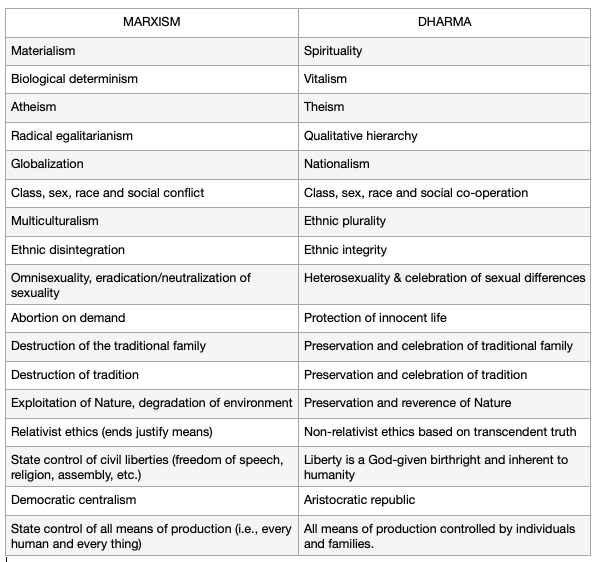
Neither Liberal Nor Conservative
 |
The Dharma Manifesto is neither liberal nor conservative, as these are conceived in modern America. Bruce Holbrook, author of The Stone Monkey: An Alternative, Chinese-Scientific Reality, appropriately called the modern liberal-conservative divide a Binary Con. This con is one application the Conflict Theory, designed to create social conflict and control politics to serve the elite ('chosen ones'). The Acharya remarks: |
|
"Both modern progressive liberalism, and the reactionary response to liberalism in the form of conservatism, are highly flawed manifestations of conflict-oriented, controlled politics. We thus reject them both. Dharma Nationalism is neither liberal nor conservative in the normative sense of these terms. Some of our positions will undoubtedly seem conservative to some people, while other positions will seem liberal. Rather, the Dharma Nation concept transcends such terms by integrating and surpassing the best of both flawed positions. Dharma Nationalism is a radically new way of understanding politics that is based upon eternal principles and a common sense approach. The Dharma Nation concept is the ultimate alternative." |
In a similar vein, Dharma Nationalism rejects the Binary Con of Capitalism vs. Socialism.
|
"Socialism is the concentration of economic power in the hands of a few via the mechanism of impersonal, centralized governmental institutions. Under socialism, the most important institution of economic power is the stat. Capitalism is the concentration of economic power in the hands of a few via the mechanism of impersonal, centralized financial and corporate institutions. Under capitalism, the most important institution of economic power is the corporation. Dharma Nationalist economics, on the other hand, is the rationally prescribed unleashing of the natural, resourceful creativity of individuals in a local context. Under Dharma Nationalism, the most important institution of economic power is the family unit." |
Economically empowered, land-owning and dharmic extended families provide both the best means of production and the best social safety net. This topic is too large to cover in this book review but Bruce Holbrook covers it extensively in The Stone Monkey.
Dharma Manifesto Policies
In the last Sri Dharma Pravartaka Acharya outlines governance and policies of a Dharma Nation. As mentioned above, some of the policies would be considered 'conservative' and some 'liberal.' The central point is that Dharma governance aims at affirmation of life, liberty, and pursuit of happiness via spirituality.
A Dharma Nationalist government encourages a culture that holds human life as sacred. Thus, it would discourage all forms of killing, including abortions and killing of animals, with the natural exceptions of cases of self-defense, preservation of life, martial defense of the nation, law enforcement, and capital punishment. Regarding the latter, a Dharma nation will implement the death penalty for those convicted of crimes of murder, rape, child molestation, torture, kidnapping for ransom, bestiality, and treason.
Pornography and sexual exploitation will be severely punished, because these undermine individual, family and social health. Of interest, according to JewishContributions.com, Jewish (Abrahamic) people have played central roles in the promotion of pornography, and according to Al Goldstein, these Jews have promoted pornography with the intent of "defiling Christian culture," i.e. specifically to create conflict with Christians.

Usury (charging interest on loans) will be outlawed. Of interest, the practice of usury has been forbidden in many society, and condemned by almost all religions, with the notable exception of Judaism, which appears to make usury a religious duty for Jews. Indeed, according to Maimonides, who is hailed as "one of the foremost rabbinic decisors and philosophers in Jewish history," Jews are commanded to impose usury on non-Jews, specifically in order to not give non-Jews any rest and cause non-Jews financial losses:

This confirms that the fundamental Abrahamic ideology––Judaism––is a type of Conflict Theory that promotes social division and conflict by commanding believers to intentionally do harm to non-believers. Compare this with Vedic or Taoist ethics which adhere to the ethic of ahimsa (non-violence), requiring adherents to treat not only all people, but all beings (animal, vegetable, and the entire natural world) with respect and care.
It is noteworthy that Jews are noteworthy for their involvement in banking in general and especially in establishing central banks including the so-called "Federal Reserve" which is not Federal (its a private bank) and has no reserves, but is responsible for devaluing the dollar through money-printing. Jewish financial elites or banks involved in usury and devaluation of currencies include the Rothschilds, J.P . Morgan, Goldman Sachs, Alan Greenspan, Milton Friedman, Ben Bernanke, Janet Yellen, and others:
- Christine Lagarde, Head of European central bank. https://blogs.timesofisrael.com/an-accident-of-faith-and-love/
- David Malpass, head of World bank. https://en.wikipedia.org/wiki/David_Malpass
- Larry Fink, chairman and CEO of BlackRock, the largest money-management firm in the world. https://en.wikipedia.org/wiki/Larry_Fink
- Lloyd Blankfein, senior chairman of Goldman Sachs. https://en.wikipedia.org/wiki/Lloyd_Blankfein
- Stephen A. Schwarzman, chairman and CEO of The Blackstone Group. https://en.wikipedia.org/wiki/Stephen_A._Schwarzman
- Emily Portney, Chief Financial Officer of BNY Mellon, the world's largest custodian bank and asset servicing company. https://www.ancestry.com/name-origin?surname=portney; https://www.ancestry.com/name-origin?surname=portnoy
- Axel A. Weber, chairman of UBS, a multinational investment bank & it maintains a presence in all major financial centres as the largest Swiss banking institution and the largest private bank in the world. https://www.ancestry.com/name-origin?surname=weber
Here are some relevant infographics from JewishContributions.com.
 |
 |
Meanwhile, Sri Dharma Pravatarka notes that usury has been condemned by Hammurabi, Gautama Buddha, Plato, Aristotle, Aristophanes, Cato, Cicero, Seneca, Plutarch, Thomas Aquinas, Dante, and even Adam Smith.
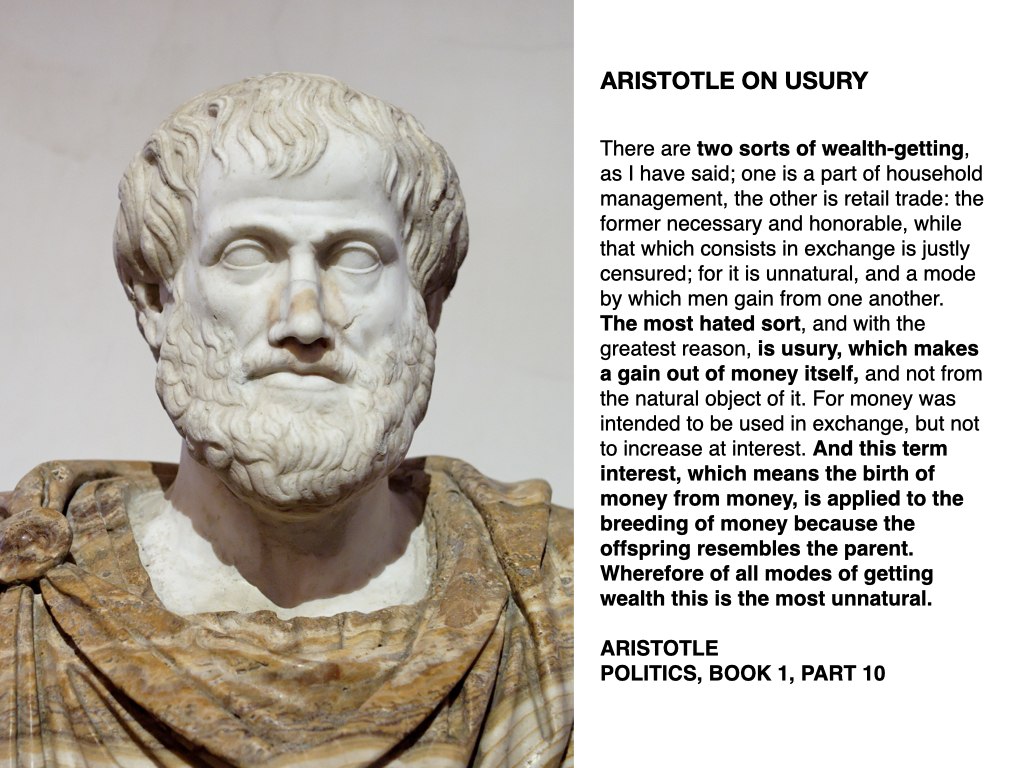
Space does not permit me to further expand this discussion of the specific policies of the Dharma Manifesto. You will have to read the book yourself, as I highly recommend.
The Dharma Manifesto Strategies
Sri Dharma Pravatarka extensively discusses specific strategies for advancing the Dharma cause. The Dharma Nation movement is not a political party, nor does it endorse any extant political party. Indeed, in regard to American politics, he recommends that if Dharma activists vote, they should generally speaking vote for whatever third party comes closest to the aims of the Dharma Manifesto (historically, this would have been The Natural Law Party, now defunct). Instead, it is a metapolitical movement seeking to influence politics by education to change minds and hearts.
|
"The Dharma Nation movement is not an electoral party, or merely a political movement in the normative sense of these terms. Our primary goal is not necessarily to directly win electoral contests by capturing a majority of votes from the masses. The drawback of having an actual political party is that it would be at a disadvantage in America's current winner-take-all electoral system. The advantage of such a metapolitical formation as the Dharma Nation movement is that it can be very successful on the local level, and can still serve as a powerful and effective outsider pressure-group upon mainstream political institutions." |
Only noble people can become Dharma Nation activists:
|
"All Dharma Nation activists are expected to uphold the highest degree of noble conduct at all times and in all circumstances, without exception. There is no acceptable excuse for any activist not strictly upholding the most ethical, moral, responsible and noble conduct in his life. The principles of conduct that we expect from all of our activists include the following;
|
Further, a Dharma Nationalist can not embrace any form of Abrahamic ideology including Judaism, Christianity, Islam, or Marxism because these have proclaimed themselves the sworn enemies of Dharma nations.
Who Should Read the Dharma Manifesto?
|
I highly recommend The Dharma Manifesto to:
|
Recent Articles
-
Ancient Roman Soldier Diet
Apr 14, 25 05:19 PM
A discussion of the ancient Roman soldier diet, its staple foods and nutritional value, and a vegan minimalist version. -
High Protein Chocolate Tofu Pudding
Jul 01, 24 12:41 PM
A delicious high protein chocolate tofu pudding. -
Vegan Macrobiotic Diet For Psoriasis
Sep 05, 23 06:36 PM
Vegan macrobiotic diet for psoriasis. My progress healing psoriasis with a vegan macrobiotic diet. -
How Every Disease Develops
Aug 04, 23 06:22 PM
How every disease develops over time, according to macrobiotic medicine. -
Why Do People Quit Being Vegan?
Jun 28, 23 08:04 PM
Why do people quit being vegan? How peer pressure and ego conspire against vegans. -
Powered By Plants
Mar 16, 23 08:01 PM
Powered By Plants is a book in which I have presented a lot of scientific evidence that humans are designed by Nature for a whole foods plant-based diet. -
Carnism Versus Libertarianism
Dec 30, 22 01:55 PM
Carnism Versus Libertarianism is an e-book demonstrating that carnism is in principle incompatible with libertarianism, voluntaryism, and anarchism. -
The Most Dangerous Superstition Book Review
Nov 15, 22 08:46 PM
Review of the book The Most Dangerous Superstition by Larken Rose.
